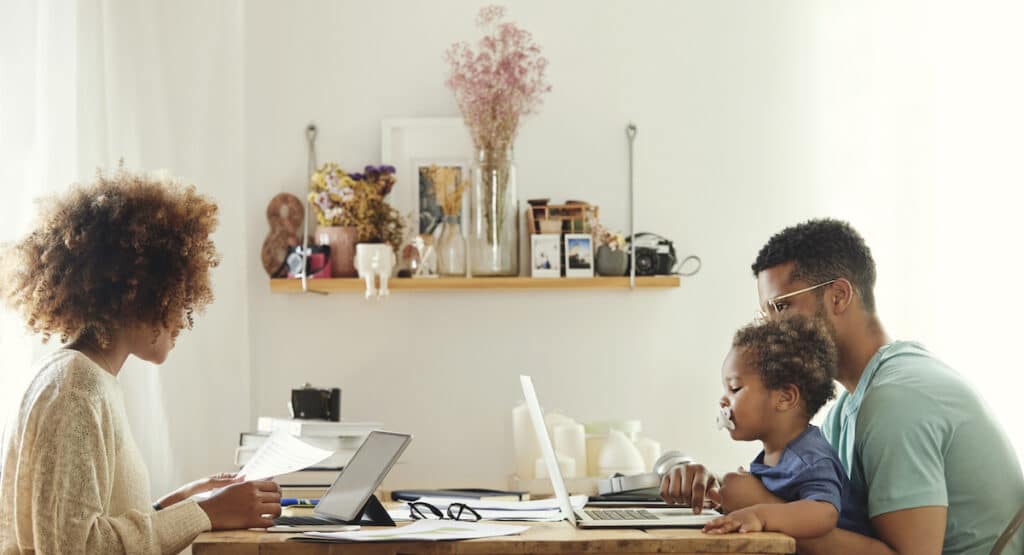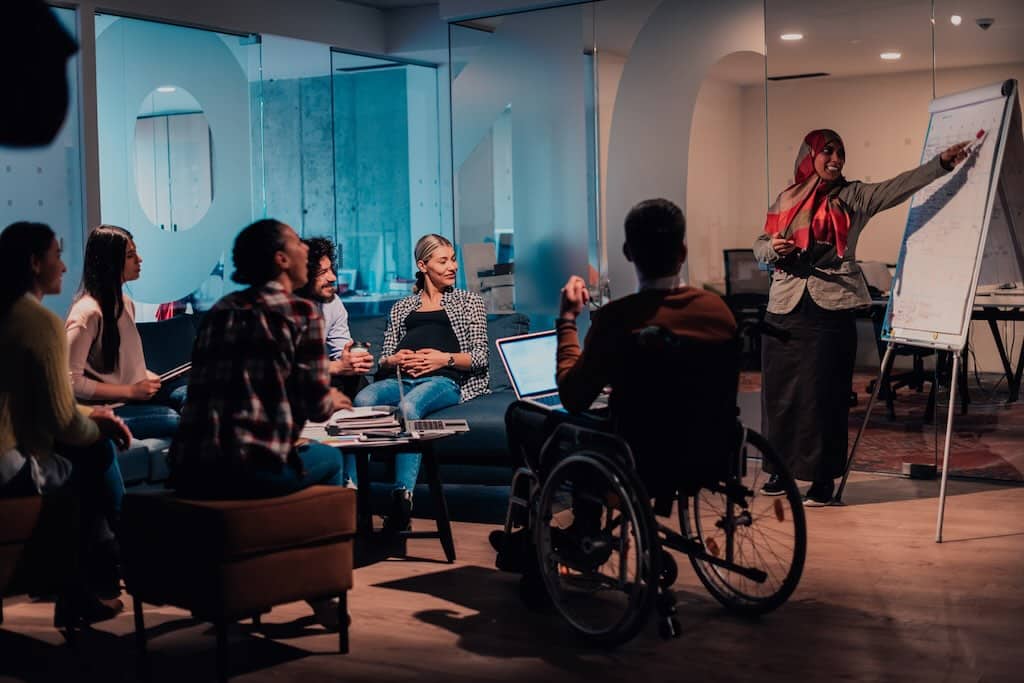We all appreciate that being a working parent is hard work, but as someone without children, it can be difficult to empathise with all the challenges parents may face.
Being a working parent at Clarasys
Being a working parent at Clarasys
We all appreciate that being a working parent is hard work, but as someone without children, it can be difficult to empathise with all the challenges parents may face.

Meet the author
We all appreciate that being a working parent is hard work, but as someone without children, it can be difficult to empathise with all the challenges parents may face. I asked some of my colleagues with children about their experience to understand the ups and downs of being a working parent as well as the impact of COVID-19 lockdowns and what Clarasys does to support their employees with children.
What are the best parts of being a working parent?
Libby Knight (People Partner and mum to a 2.5-year-old daughter): I’m more productive, focused and I manage my time so much better now. Having children has also given me a real perspective on what’s important in life and highlighted that there is little or no need to ‘sweat the small stuff.
Jeff Isaacs (Principle Consultant and dad to three boys aged 8 months – 7 years): I think I’ve become more focused and I set firm boundaries which allows me to be more purposeful and intentional. Kids also bring a new perspective because they have a great outlook on life and seeing someone grow, develop and build resilience is an amazing learning experience.
What are the challenges of being a working parent?
LK: Always having to finish on the dot so you don’t get fined by the nursery for a late pick-up can be tough, particularly when you’re right in the middle of something. It’s also easy to feel guilty no matter what you’re doing. If you’re doing a great job at work, you can feel guilty that you’re not being a good mother or vice versa.
JI: Kids need lots of planning and micro-decisions and this constant activity requires a lot of energy on top of the energy required for work. I also model myself as a modern father and I struggle with the lack of precedence within the industry. I’m very involved with my kids and take on roles that are traditionally “female” but there’s no clear roadmap for this.
What was different about being a working parent during a pandemic?
LK: The amount I’ve had to multitask. At the start of the pandemic, my daughter was at an age where she was always trying to put things in her mouth or play with plug sockets so I had to constantly switch between working and parenting. It was absolutely exhausting. Having said that, we’ve also gained so much. I was able to watch my daughter go from a baby to a toddler and from crawling to walking which I’d have missed had it not been for lockdown.
JI: My wife and I had a baby during lockdown so we had to homeschool our two older sons alongside raising a newborn. We approached each lockdown slightly differently, but I was still anxious about my kids’ education and social lives. During the first lockdown, both my wife and I were working full-time so we had to negotiate scheduling meetings alongside parenting. On the other hand, we got to see a lot more of our children and were forced to work less. I had to be very intentional about finding support and mitigating these changes with the team which forced us to have a dialogue about it.
What does Clarasys do to support working parents?
LK: I am so grateful to work for Clarasys as it’s such an open and honest environment. At the start of lockdown, we set up a regular working parents’ group to discuss how we were feeling, flag challenges and ask for any additional support. At Clarasys our work is outcome-focused so it doesn’t really matter how we get the work done as long as we get it done which means that we’re able to do what’s right for us and our families, as well as what’s right for the company.
JI: For me, it’s all about the flexible attitude. I remember a few years ago I was only just keeping on top of my workload and parenting. I wanted to take my son to a weekly swimming class so I needed to finish early and it would have been a challenge to make up the hours. I considered transitioning to working part-time and Clarasys responded that I’d work out what works for me. This really encapsulated Clarasys’ trust and flexibility and it was an empowering moment because I did make it work. The generous maternity and paternity leave allowance made a huge difference at the time and the generally flexible work and flexible holiday allowance is also beneficial.
What should / could companies do to support working parents more?
LK: At Clarasys we often say “people before policy” and what this means, in essence, is to listen to your people and respond to their specific needs, rather than Leadership Teams imposing what they ‘think’ is most important. As a general rule, I think companies need to view parents as one unit and not simply focus on the mother. I’m a huge advocate for the rise in popularity of shared parental leave and would love to see more firms moving towards a single, gender-neutral parental policy.
JI: I don’t think there’s enough support for women in the workplace. The burden on women is draining and makes pursuing a career difficult particularly returning from maternity leave and issues with pay disparity. Childcare costs are also a factor and can prevent people from coming back to work or put them off at least so essentially I think the best thing companies can do is talk about it and open a dialogue about what it’s like to be a parent to help colleagues understand. I remember working with parents earlier in my career and not having the empathy or understanding.
Any final thoughts?
LK: From my perspective, being a working parent is tough, but the positives far outweigh the negatives and I actually had a really good time during the pandemic!. Clarasys is doing so much already in this space, of course, there’s more we could do but we listen to our people, we trust them and then respond accordingly.
JI: Expectations on parents are significant and during one of our working parent forums, we had a discussion around what we should be doing. Something that came up a lot was the guilt parents feel. I think it’s important to learn to be okay with what you do and not to worry so much about what you don’t do.

